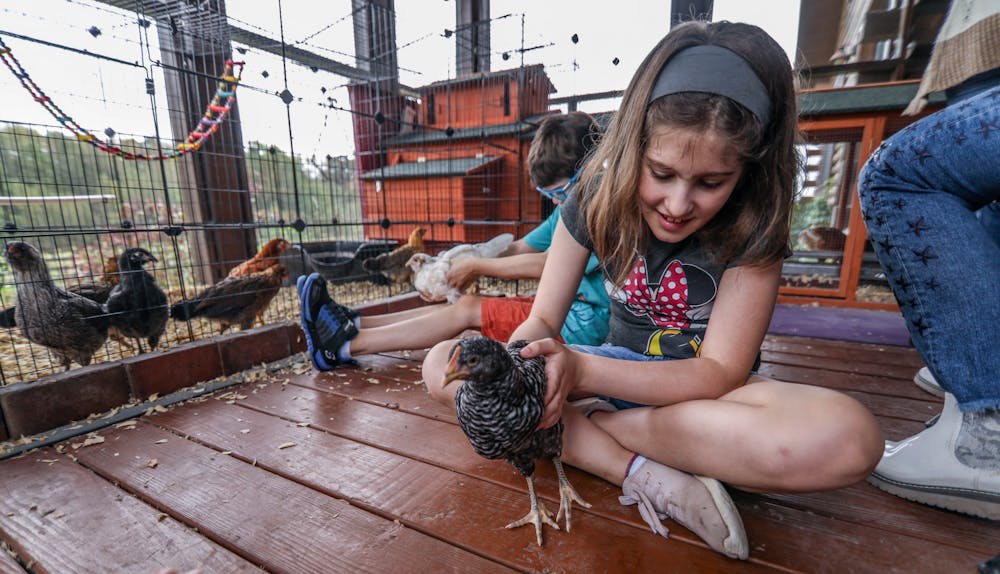While exposure to the outside world has been limited during the COVID-19 pandemic, students with autism face a new set of challenges that have been exacerbated by fluctuating measures regarding hybrid instruction in the Wake County School System. Approximately one year after the onset of the pandemic, parents with students in special education programs still find themselves left behind by Wake County.
Despite the challenges of enduring a pandemic as a parent, Menzo was assisted by 3 Bluebirds Farm, a nonprofit south of Raleigh. Three years ago, Menzo discovered the farm and found comfort in the fact that the activities of the camp revolved around Addie and not her diagnosis. The nonprofit is dedicated to assisting children and young adults with autism in a year-round camp setting, which has helped individuals with autism who are struggling throughout the pandemic.
Erin O’Loughlin, the founder of 3 Bluebirds Farm and the year-round Camp Bluebird which Addie attends, feel the issue of fluctuating special education funding and aid stretches beyond Wake County, the largest school district in North Carolina, and has only been exacerbated by the pandemic.
“I can, without a doubt, say this is not just a Wake County problem. This is a nationwide problem,” O’Loughlin said. “And what COVID-19 did was basically shine a light on a problem that's always been here, and that is special needs classes and special needs services do not get enough funding.”


